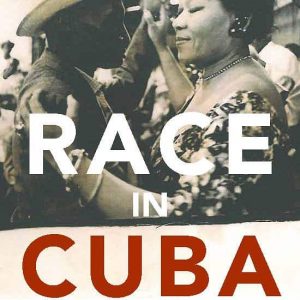Available for the first time in English, the essays collected here describe the problem of racial inequality in Cuba, provide evidence of its existence, constructively criticize efforts by the Cuban political leadership to end discrimination, and point to a possible way forward. This book underscores that one can both believe in the Revolution as well as identify areas needed for improvement, and represents a noteworthy shift in thinking about race in Cuba, concludes Vanessa K. Valdés.
Race in Cuba: Essays on the Revolution and Racial Inequality. Esteban Morales Domínguez. Monthly Review Press. February 2013.
On March 23, 2013, an op-ed entitled, “For Blacks in Cuba, the Revolutions Hasn’t Begun” by Roberto Zurbano Torres, head of the publishing arm of Casa de las Américas, appeared in the the New York Times; within weeks, he was removed from his position. While Zurbano may have brought the plight of Afro-Cubans to the attention of foreign readers, he also highlighted the burgeoning anti-racist activism occurring on the island, led by intellectuals of African descent who support the Revolution and yet who contend that race continues to play a determining factor in questions of education and employment, among other areas.
Esteban Morales Domínguez is one of those allies; Race in Cuba is a selection of his writings from 2002-2012 in translation. Professor Emeritus of Political Economy of the University of Havana, Morales Domínguez, who continues to live in and write from Cuba, is a prolific social scientist and a leading scholar of race. With this collection of articles, essays, and interviews, he demonstrates how one can both be a supporter of the Revolution as well as a critic of its shortcomings primarily where it comes to race.
Morales Domínguez is the author of Desafios de la problemática racial en Cuba (2007), the first substantial study on contemporary issues related to race published since the beginning of the Cuban Revolution, and the summary of which makes up the first chapter here. He identifies contemporary racism and racial discrimination as an area of study that has been woefully ignored by scholars on the island because it was declared to have been eradicated by 1962, after the first wave of reforms made by the government. He names scholars such as Alejandro de la Fuente, Ada Ferrer, Aline Helg, and Mark Q. Sawyer, among others, who have published studies on the legacies of slavery on present-day Cuba; nevertheless, to his mind, ceding this intellectual ground to academics outside of the island is a serious error, one that can be corrected through a sustained focus on issues of race and skin colour in terms of statistics collection, education, and policy.
For him, the Revolution unquestionably made structural changes regarding equality and social justice by outlawing racial discrimination in all sectors of life on the island, including in areas such as education and housing. Throughout the text, he affirms that there is no institutional racism on the island; however, he does note that the strides made in the fifty-four years of the Revolution come after more than several centuries of racial discrimination and prejudice, the vestiges of which re-emerged during the Special Period of the late 1980s and early 1990s…

Comments are closed.